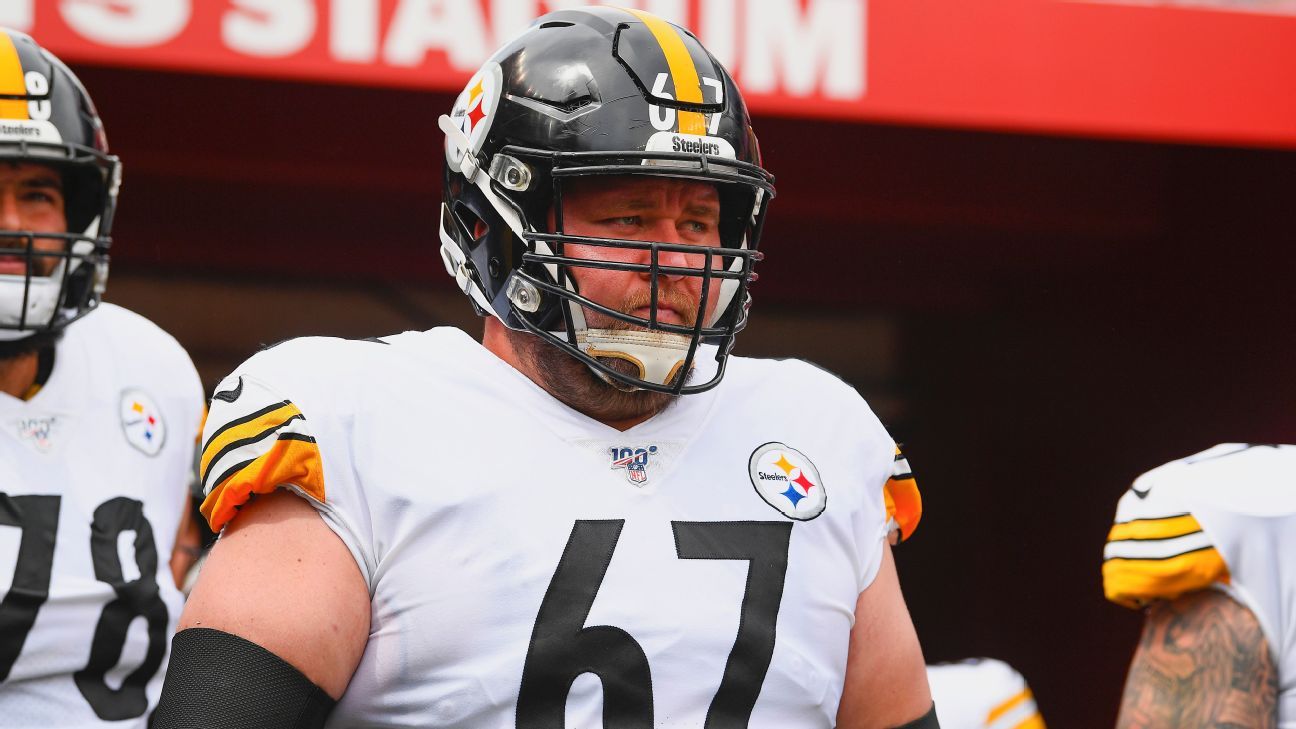The Cincinnati Bengals on Friday released guard B.J. Finney, ending a year of confusion, fear and physical limitations for the former $8 million player.
Finney struggled to properly train last offseason in fear of losing a $2 million signing bonus from the Seattle Seahawks due to COVID-19 restrictions on physicals, sources told ESPN. Finney signed a two-year, $8 million deal with Seattle last March but never played an offensive down for the team, showing up to camp out of shape.
Seattle shipped him to Cincinnati as part of the Carlos Dunlap deal in October, and he didn’t play there either. The core issue: With teams unable to oversee physicals last offseason due to the coronavirus outbreak, they placed clauses in contracts that failed physicals would result in forfeited signing bonus money.
Finney couldn’t take his physical until training camp — Seattle’s building temporarily shut down and the team did not permit third-party physicals, which some but not all NFL teams did. So Finney scaled back his workouts to avoid getting hurt and showed up to camp above his normal playing weight of 315 pounds.
The absence of Organized Team Activities and minicamp in June didn’t help the former undrafted free agent who relies on smarts and anticipation above raw athleticism. He eventually got beat out by Ethan Pocic at center in Seattle.
Another free agent signed by Seattle last year confirmed the contractual issue with the physicals was a hurdle.
“It put a player like him in a bad situation — he literally couldn’t work out to get in shape, and he was in a funk all year because of it,” a source close to Finney with direct knowledge of the situation told ESPN. “This is the one time you can set yourself up for life, and if you tweak your back or do anything, you’re in jeopardy of losing your contract.”
Finney ended up making $3.03 million from Seattle — where he played 29 special teams snaps, none on offense — and $1.47 million from Cincinnati.
Finney, 29, spent the first four seasons of his career with the Pittsburgh Steelers.
ESPN’s Brady Henderson contributed to this report.
